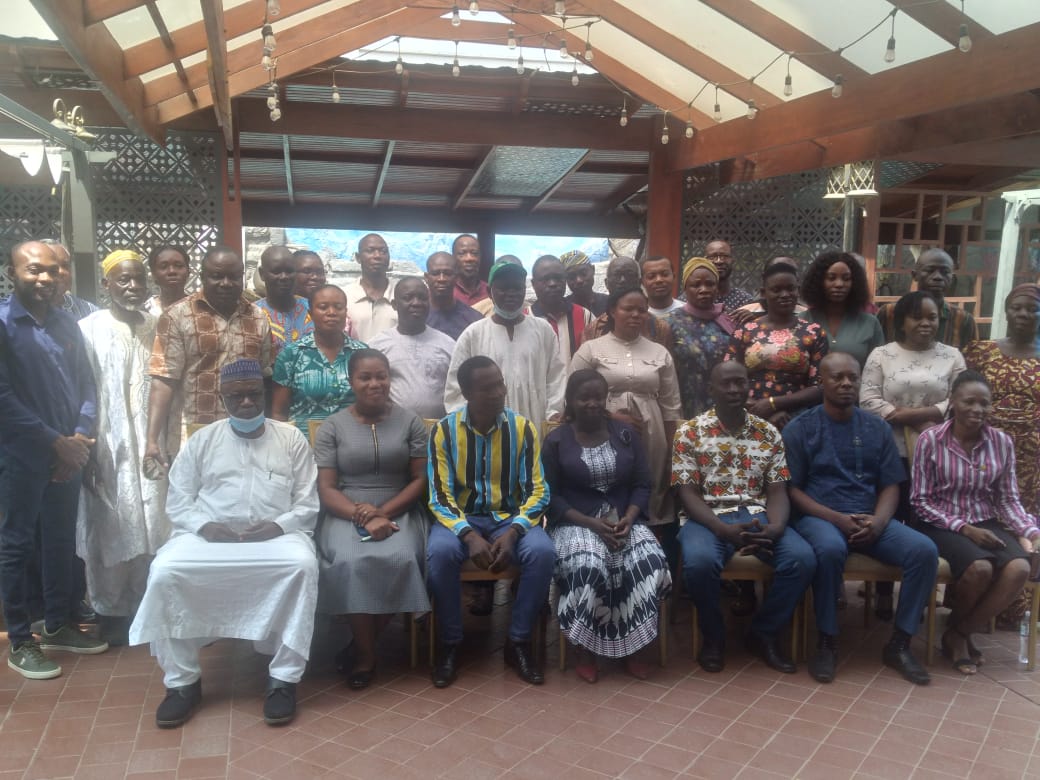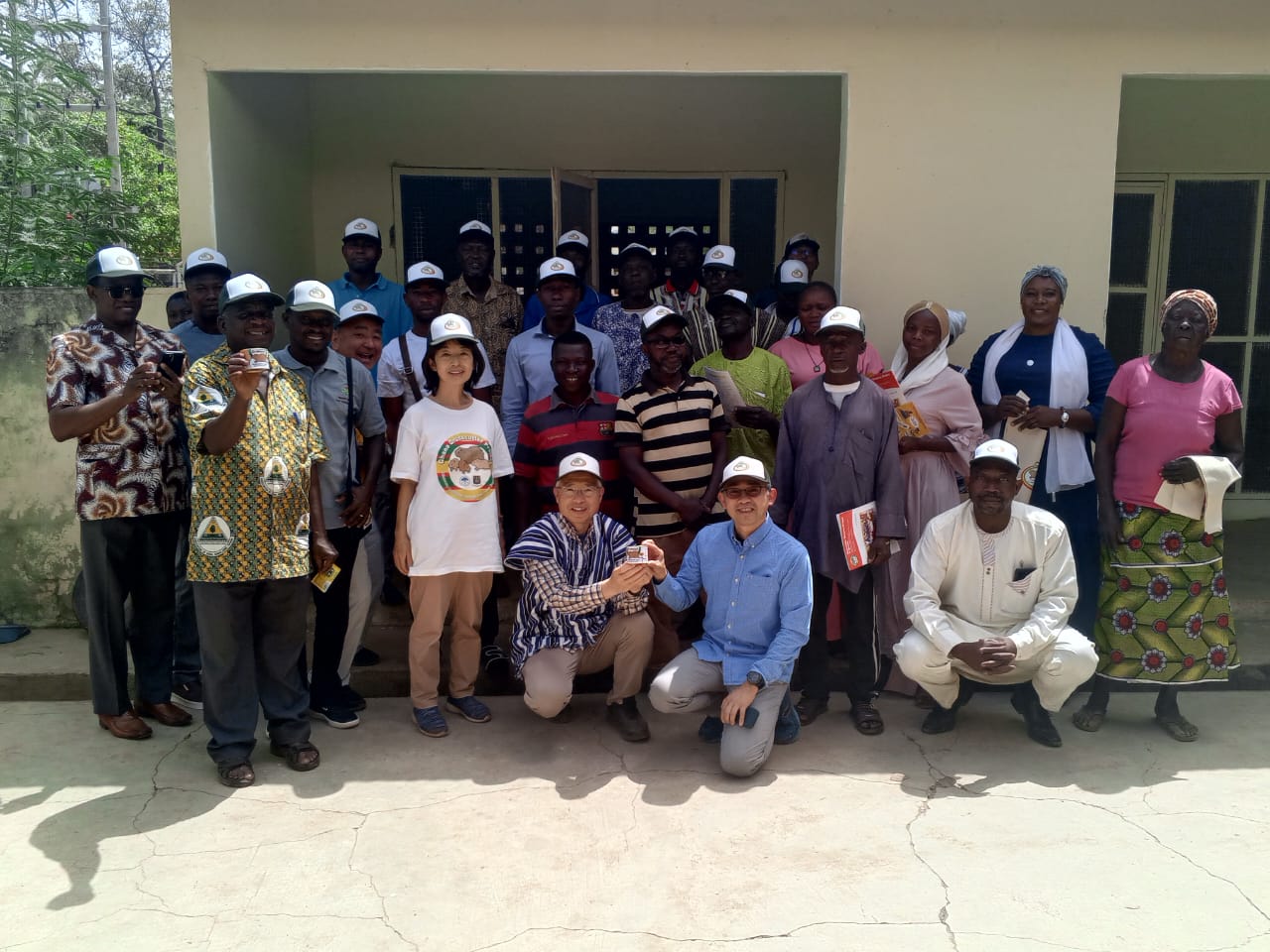
Founder of the PanAfrican Heritage Museum (PAHM), Kojo Yankah, has said that the concerns raised by peasant farmers in Ghana against Genetically Modified Organisms (GMOs) should be adhered to.
He argues that the farmers bear the pains that go into feeding the nation therefore, the authorities must listen to the issues that they raise.
The Founder of the African University College of Communications (AUCC) wrote on his Facebook page that “Genetically Modified Organism (GMO) seeds have been recently approved for Ghanaian farmers. Peasant Farmers are up in arms opposing this step. They prefer the natural to laboratory modified seeds. We should listen to our peasant farmers because they bear the pains that go into feeding the nation.
“Our farming lands are losing fertility to chemicals from laboratories we cannot control. And our medical bills are going up because of strange diseases that were not familiar to our fathers and forefathers. We have a future to protect.”
The peasant farmers, in rejecting the recent approval of genetically modified organisms, indicated that GMO crops were not the solution to the country’s food insecurity challenges.
The country recently granted approval for the commercialisation of 14 novel genetically modified (GM) products, consisting of eight (8) maize and six (6) soya bean products, through the National Biosafety Authority (NBA).
This decision followed the release of GM cowpea in 2022.
But the president of the peasant farmers, Wepia Addo Awal Adugwala, criticised the adoption of GMO technology.
“While we find this development disturbing, we are not particularly surprised as we predicted that neglecting the resistance of key stakeholders against the passage of the Plant Variety Protection Act, 2020, which was just a leeway and a canopy to allow the commercialisation of GMO products meant to promote the interests of four multinational seed companies—Bayer, Corteva, Syngenta and Group Limagrain—that control over 50 percent of the seed sector globally,” Mr Adugwala said.
He added “This is because Ghanaian farmers have managed to produce ample food using farmer-saved seeds and new seed varieties released by local seed breeders”. He highlighted that in 2023, Ghanaian farmers, without any government support, successfully produced significant amounts of grains, tubers and vegetables but are now facing difficulties in finding markets. “All efforts by the government to assist with market access have failed; and currently, rice and maize farmers are relying on Burkinabes and Togolese for markets,” he added.
He questioned: “If we can produce so much with our local seeds, why the preference for laboratory seeds that come with serious negative implications for health, the economy and the environment? The government and Ghanaian scientists should focus their energy on the well-being of Ghanaians rather than their own interests”.
However, addressing their concerns, the National Biosafety Authority (NBA), the body responsible for the regulation of genetically modified (GM) and its related products, indicated that it had not granted approval for the seeds of 14 GM products to be cultivated in Ghana.
The Chief Executive Officer of NBA, Eric Amaning Okoree, in a statement dated April 10, 2024,said the NBA, has only registered 14 GM products to be imported into the country.
He explained that any entity that is interested in importing any GM products into the country must first get an import permit from the NBA to be able to do so.
He said the 14 approved GM products are also not for cultivation but “they are for the purposes of food, feed or processing.”
“They have been registered to allow for importation for those purposes by individuals or groups interested in them. Any entity interested will require an import permit from the NBA to be able to import them for use in the country. Therefore, the NBA wishes to state categorically that those events or products have not been imported into the country for food, feed or processing yet,” he explained.
The NBA boss further explained that NBA as the government agency responsible for the regulation of GM and its related products has laid down procedures in line with Biosafety Act, 2011 (Act 831) and with international best practices in deciding on any application brought before it.
That, he noted, the “Authority therefore wishes to assure Ghanaians of the safety of GM product(s) that have received the NBA’s approval; notably the Bt Cowpea submitted by SARI and the fourteen (14) events submitted by Bayer West-Central Africa S.A and Syngenta South Africa which are intended for food, feed or for processing.”
Mr Okoree explained that the 14 approved products, made up of eight maize and six soybean events are not intended for cultivation.
“They are, rather, grains for direct use as food, feed or for processing as stated above. This approval was granted under Section 13 of the Biosafety Act, 2011 (Act 831) and Regulation 15 of the Biosafety (Management of Biotechnology) Regulations, 2019 (LI 2383) following the evaluation of data and information supplied by the applicant and a thorough risk assessment by the NBA Technical Advisory Committee (TAC),” he indicated.
He explained that having received the applications for registration, the Authority evaluated the events in line with available data provided by the applicants in line with the authority’s mandate and regulatory processes.
Mr Okoree expressed the concern that the call to reject any GM seeds that will be supplied is “unfortunate”, adding “The NBA recognises the need for Ghanaians to adapt to the emerging plant breeding technologies in the agricultural space for sustained crop improvement and food security.”
In addition, he said, “We wish to reiterate the fact that the improved yield and sustained food security will rather inure to the benefits of farmers rather than impoverish them as being speculated by a section of the media. Again, there is a robust biosafety system in place to ensure the safety of GMOs officially released in the country.”
Read below his full statement…
RE: GHANA COMMERCIALISES 14 GENETICALLY MODIFIED EVENTS
The attention of the National Biosafety Authority has been drawn to some inaccurate media reportage about the NBA’s registration of 14 novel GM events in the country. While we appreciate the various concerns raised, the NBA wishes to state that the approved events are not for cultivation. They are for the purposes of food, feed or processing. They have been registered to allow for importation for those purposes by individuals or groups interested in them. Any entity interested will require an import permit from the NBA to be able to import them for use in the country. Therefore, the NBA wishes to state categorically that those events or products have not been imported into the country for food, feed or processing yet.
It is important to note that the NBA as the government agency responsible for the regulation of GM and its related products has laid down procedures in line with Biosafety Act, 2011 (Act 831) and with international best practices in deciding on any application brought before it. The Authority therefore wishes to assure Ghanaians of the safety of GM product(s) that have received the NBA’s approval; notably the Bt Cowpea submitted by SARI and the fourteen (14) events submitted by Bayer West-Central Africa S.A and Syngenta South Africa which are intended for food, feed or for processing.
Registered products are not seeds for planting but for food, feed or processing
The 14 approved products, made up of eight (8) maize and six (6) soybean events it must be emphasized are not intended for cultivation. They are, rather, grains for direct use as food, feed or for processing as stated above. This approval was granted under Section 13 of the Biosafety Act, 2011 (Act 831) and Regulation 15 of the Biosafety (Management of Biotechnology) Regulations, 2019 (LI 2383) following the evaluation of data and information supplied by the applicant and a thorough risk assessment by the NBA Technical Advisory Committee (TAC).
Risk assessment and Findings
Having received the applications, the Authority evaluated the events in line with available data provided by the applicants as stated above and on the Biosafety Clearing House (BCH), the Organisation for Economic Co-operation and Development (OECD) Biotrack Product Database and the Food and Agriculture Organisation (FAO) of the United Nations genetically modified food platform to determine the under listed conditions:
- Development of the modified events including the molecular biology data that characterize the genetic change,
- proximate analyses; major constituents (fats, proteins, carbohydrates) and minor constituents (minerals and vitamins),
- composition of, and nutritional information (including anti-nutrients) on the GM products compared to their conventional counterparts).
- the potential for causing allergic reactions.
- microbiological and chemical safety of the event(s)
- the potential for the production of new toxins in the events(s), and,
- the potential for any unintended or secondary effects. \
The NBA wishes to state categorically that after a thorough risk assessment and evaluation, there were no adverse findings with any demonstrable history of biosafety concerns. For the records, countries like Argentina, Australia, Uruguay, Singapore, Thailand, USA and South Africa among others have already given similar approvals and have confirmed same to be as safe as their conventional counterparts.
Cowpea released on blind side of Ghanaians consumers
There was enough room for public participation by the public especially farmers in line with Section 42 of the Biosafety Law (Act 831). The Authority also duly published in the Ghana Gazette of June 25, 2021 the Confined Field Trials, and July 26, 2022 Issue 123 the Environmental Release notification. The Daily Graphic edition of Thursday, June 22, 2023 also published the notice of environmental release. There was therefore enough public consultation prior to the approval.
Call to reject GM seeds
The call to reject any GM seeds that will be supplied is unfortunate. The NBA recognizes the need for Ghanaians to adapt to the emerging plant breeding technologies in the agricultural space for sustained crop improvement and food security. We wish to reiterate the fact that the improved yield and sustained food security will rather inure to the benefits of farmers rather than impoverish them as being speculated by a section of the media. Again, there is a robust biosafety system in place to ensure the safety of GMOs officially released in the country.The NBA wishes to assure Ghanaians that the Act 831 will be effectively implemented to safeguard the environment and health of Ghanaians. The NBA will continue to monitor for any unapproved GMOs in the country and follow up on the performance of those GMOs already approved in the country.
CHIEF EXECUTIVE OFFICER
ERIC AMANING OKOREE
The post Listen to the concerns of peasant farmers on GM foods – Yankah first appeared on 3News.
Read Full Story



















Facebook
Twitter
Pinterest
Instagram
Google+
YouTube
LinkedIn
RSS